R/ La désintégration du bloc de l’Est fut un événement majeur et fondateur de notre époque. Pourtant, les raisons de l’éclatement du système soviétique restent en grande partie mystérieuses. Vous avez, depuis plusieurs années, tenté de déchiffrer cette énigme par vos recherches. Comment expliquez-vous ce phénomène ?
Il est vrai que j’ai longuement écrit sur ce thème sans pour autant, me semble-t-il, avoir donné une réponse décisive ou entièrement satisfaisante. J’avais naguère conclu un chapitre d’un de mes ouvrages intitulé « Le réalisme socialiste ou la victoire de la bourgeoisie » par une boutade qui bien sûr avait déplu à la bienséance frileuse des universitaires : « Ce ne sont ni les gesticulations antisoviétiques du pape Jean-Paul II ni même les investissements militaires pharaoniques requis par la course aux armements sans cesse relancée par les États-Unis et la guerre des étoiles ! Car, dans des situations bien plus tragiques l’URSS est demeurée soviétique, certes avec des aménagements, mais néanmoins soviétiques. Ce qui a fait implosé le système c’est une mutation idéologique pour parler vite, ou mieux une mutation de la vision du monde et donc du futur dans les élites soviétiques et dans une partie de la population… Le sacrifice, l’effort, la compétition du militant pour un monde social et collectif meilleur les avaient déserté depuis la fin de l’ère Khroutchev ; disons que l’ère de Brejnev a été, les vrais débuts de l’entrée de l’URSS dans un temps de consumérisme, certes de consumérisme fragile et sans cesse inaccompli. Aussi, ce qui a conduit à l’abandon aussi rapide du système politico-économique soviétique tient quelque part à la victoire des images véhiculées par les feuilletons, les films, les revues étasuniennes et occidentales en général. C’est, je pense, une fois encore la preuve que le ciment d’une société demeure le copartage général d’une idée sur le monde, c’est-à-dire outre les sagas héroïsant le passé, à un accord à la fois explicite et implicite sur le bon gouvernement et le bien commun du futur… Mais, il resterait encore à faire des études très pointues sur la manière donc les visions concordantes du futur en Union soviétique après la mort de Staline se sont peu à peu effritées, fissurées parmi une majorité des élites politiques, sociales, économiques, culturelles, pour conduire à l’implosion dont nous fûmes à la fin des années 1980 les témoins… Car, c’est bien au cœur de l’élite des élites la plus centrée sur la connaissance et l’analyse de l’Occident, parmi les spécialistes de l’économie au sein du KGB que le changement a été pensé, puis mis en œuvre sous la férule de leur chef Youri Andropov ! Par-delà les détails de politologie et de sociologie à trois sous, c’est en ce lieu que se sont concentrées les analyses, et aussi les contradictions d’où sont nées les crises des années 1986-2000, depuis la Perestroïka jusqu’à l’élection de Poutine… Le reste de l’Europe de l’Est a suivi, car, nous le voyons bien aujourd’hui, ces pays n’ont aucune autonomie politique (dussent-ils avoir de fortes autonomies culturelles), les élites y font ce que le plus fort qui les domine leur commande. Hier ce furent les Soviétiques, aujourd’hui les États-Unis, demain, sait-on jamais, peut-être les Chinois ou les Indiens !
R/ Vous avez particulièrement étudié l’histoire de la Roumanie. La chute de Ceausescu fut un enjeu important du démantèlement du « glacis soviétique ». Elle donna lieu à la première grande manipulation médiatique contemporaine avec l’affaire du faux charnier de Timisoara. Pouvez-vous revenir sur les enjeux et les mécanismes de la « révolution » roumaine?
Je ne pense pas que la chute du gouvernement national-communiste dirigé par le président Ceausescu fut importante sur le plan purement géopolitique de la puissance. Dès lors que la Pologne, la Hongrie et l’Allemagne de l’Est avaient basculé, le poids géopolitique de la Roumanie, même assez indépendante du Pacte de Varsovie à cette époque la Roumanie ne comptait guère. Son armée était plus que médiocrement entraînée et armée. Du point de vue géostratégique plus important fut de démolir la Yougoslavie qui détenait à coup sûr la meilleure armée des Balkans, une armée entraînée en permanence à la guerre de guérilla (c’est pour cela il n’y a jamais eu de confrontation terrestre entre les troupes de l’OTAN et l’armée serbe). En revanche, la chute de Ceausescu a eu une importance symbolique cardinale en ce que les média occidentaux, Radio Free Europe, RFI, Deutsche Welle, La Voix de l’Amérique, et par des groupes d’émigrés plus ou moins jeunes, allant des anciens fascistes de la Garde de fer à de jeunes intellectuels venus chercher fortune en Occident et faisant le plus souvent passer de l’émigration économique pour de l’émigration politique avec la complaisance des autorités occidentales de toutes sortes, etc., avaient construit un personnage effrayant, une sorte de nouveau « Dracula »… Or, malgré les coups de boutoirs médiatiques, il n’arrivait pas à tomber, parce que les élites culturelles roumaines étaient totalement à la fois soumise au pouvoir (aujourd’hui on en apprend les détails ma foi plus que grotesques) et d’un mépris total pour une possible alliance avec les ouvriers (on l’a vu pendant les révoltes des mineurs de la Vallée du Jiu en 1977 et des métallos des usines de tracteurs de Brasov en 1988). Or, le pouvoir du régime de Ceausescu possédait une authentique légitimité dans les diverses couches ouvrière et paysanne malgré des restrictions à la consommation assez drastiques, lesquelles avaient en revanche rehaussé la fierté nationale parce que l’année de sa chute le régime avait réussi à rembourser toutes ses dettes au FMI et à la Banque Mondiale. Aussi faut-il voir qu’une alliance s’est conclu entre les alliés roumains de la Perestroïka via Moscou, des agents soviétiques en poste à Bucarest, ceux de la Yougoslavie (encore communiste) dans l’Ouest de la Roumanie et en particulier à Timisoara, ceux de la Hongrie en train de changer de pouvoir et les États-Unis pour organiser un véritable coup d’État (sûrement précisé entre experts lors de la réunion de Malte entre Gorbatchev et Reagan) et scénographié en révolution. Certes il y eut beaucoup moins de pertes que la manipulation médiatique l’avança, toutefois le cynisme des comploteurs les conduisit à la mise en place de véritables scènes de tueries, comme, par exemple, celles des élèves de l’école de la Sécurité (police politique) de Bucarest envoyés désarmés à l’aéroport de Bucarest pour arrêter de prétendus « terroristes », mais attendus de fait par des éléments de l’armée pour faire accroire au contraire à une attaque terroriste, et tirés comme des lapins de garenne… On comprend que tous les moyens furent bons pour éliminer le chef de l’État y compris sa parodie de procès et ce qu’il faut bien regardé comme son meurtre ainsi que celui de son épouse, dans une scène qui n’était pas, en raison de la dignité des époux Ceausescu au moment ultime, sans me faire penser à celle du roi Lear… mais, par peur de fuite possible, on apprit, à court terme, le suicide (?) de certains des protagonistes qui avaient participé à cette macabre justice expéditive…
Une fois Ceausescu disparu, symboliquement le système communiste n’avait plus que des dictateurs de moindre importance, le Bulgare, Jivkov éliminé par une révolution de palais, et l’Albanie, avec ses vendettas archaïques entre fractions du parti qui se confondent avec des alliances familiales…

R/ Vous montrez l’importance fondamentale de la fascination de la nomenklatura pour les valeurs occidentales dans l’origine du processus qui aboutit à la fin du « socialisme réel ». Comment expliquer la « trahison » et la rapide reconversion des élites de l’est à la logique libérale ? Peut-on expliquer ce phénomène sans précédent dans l’histoire par la nature même du système soviétique ?
Une partie de la réponse est déjà donnée. La seconde partie de votre question obligerait à une très longue analyse de la manière dont le système soviétique a créé les classes moyennes dans son empire et ses satellites, classes qui l’ont délégitimé. Je ne sais si l’on peut parler de trahison dans ce cas. Ou alors l’histoire n’est qu’une longue suite de « trahisons » ! Par ailleurs il n’y a pas eu de conversion rapide, seulement en apparence elle fut rapide pour les besoins de du spectacle médiatique. Je pense que cette conversion, si on peut nommer ainsi ce phénomène (quant à moi je préfère parler d’un changement de la stratégie de l’accession ou du maintien du pouvoir) a duré une quarantaine d’année, à partir du moment où, après la Seconde Guerre mondiale, l’URSS (et les pays satellites) ont déployé des efforts considérables de reconstruction et de développement et en particulier de développement des catégories socio-professionnelles fondatrices des classes moyennes, les ingénieurs et les techniciens supérieurs, autant d’agents de la fabrication de la puissance technoscientifique, et donc militaire. Ces gens sont peu à peu devenus ce qu’ils partout ailleurs des acteurs sociaux de la modernité qui veulent consommer en compensation de leur travail, et qui délaisse les idéaux de vertu sociale du socialisme et de la révolution, et ce d’autant plus que le parti dirigeant, le PCUS et les partis satellites étaient devenus une immense machine bureaucratico-administrative… Ce qu’il faudrait plutôt expliquer, c’est la convergence des aspirations et des visions du futur, comme l’avenir réduit à la vision gestionnaire, de toutes les classes moyennes dans n’importe quel régime politique de la modernité…
R/ Contrairement à l’impression donnée par la propagande occidentale durant la guerre froide, le camp soviétique était loin d’être un univers figé. En son sein, un processus de modernisation des sociétés est-européennes s’est opéré et des valeurs collectives furent mises en avant. Pourquoi et comment ce système n’a pu ou n’a su offrir des alternatives viables et véritables au capitalisme US ?
Vos questions reprennent les réponses que j’ai tenté de donner dans mes trois derniers ouvrages.
Sur le plan de la modernité technique, l’Union soviétique d’abord, puis le camp soviétique n’ont jamais été un espace figé, glaciaire (sauf le climat), partout le développement y a explosé avec une vitesse sidérale et donc, avec une violence qui non seulement criminalisait le pouvoir soviétique confronté à une société russe paysanne indolente, archaïque, conservatrice au sens étymologique du terme, mais, et la propagande anti-soviétique l’a omis systématiquement, cette violence manifestait en contrepartie une dynamique de la promotion sociale sans précédent qui permettait à des hommes et des femmes d’accéder à des fonctions de pouvoir et de prestige en un quelques années… Si le Goulag vidait des institutions, d’autres personnes venaient occuper les fonctions ainsi « libérées ». En termes de sociologie du travail, on dirait qu’il y avait un grand turn over des salariés…Cela était « normal » dans une situation hautement révolutionnaire, ou qui suivit immédiatement la Seconde Guerre mondiale avec son cortège de règlements de compte où il fallait mettre en œuvre un hyper développement simultanément contrôlé par une forte répression de toutes les oppositions quelle qu’en soit la nature.
 Les raisons pour lesquelles ce système n’a pas pu donner une véritable alternative au capitalisme étatsunien me paraissent tenir au modèle même de développement choisi par l’URSS, de fait, le modèle étasunien plus que les modèles européens (cf. les reportages de Joseph Roth, Rüssiche Reisen), où tout en maintenant et déployant des coûts sociaux gigantesques que le système étasunien laisse à la philanthropie privée ou simplement abandonne à la débrouillardise, à souvent à la délinquance… A-t-on mesuré les coûts des vacances très largement subventionnées par les syndicats et donc les entreprises, les systèmes d’enseignement gratuits, la couverture médicales, peut-être médiocre en qualité) mais elle aussi quasi gratuite, comme la protection sociale, la culture, etc. Prenons un autre exemple : lors d’une interview donnée vers la fin de sa vie Tarkovski, le cinéaste soviétique, affirmait qu’il regrettait avoir émigré, car les conditions de travail qu’il avait trouvé en Occident (Suède et Italie) l’obligeaient à travailler rapidement, et donc sans le fignolage extrême qu’il affectionnait, en raison des problèmes de coût et de rentabilité, tandis qu’en URSS disait-il, on peut refaire une scène quarante fois sans que personne de la production ne vienne vous demande d’arrêter parce que c’est trop cher ! Ceci multiplié à l’échelle d’un empire (multiplication des établissements d’enseignement dans les républiques asiatiques, multiplication des institutions culturelles locales, cinéma arméniens, géorgiens, du Kazakhstan, Ouzbékistan), nous montre des coûts dont les États-Unis se dispensaient de supporter. De plus et ce n’est pas négligeable, à l’échelle de l’économie mondiale, les Soviétiques n’ont jamais eu la maîtrise d’une quelconque parcelle du commerce mondial en ce que la monnaie étalon de tous les échanges a toujours été le dollar, voire dans certaines zones européennes, le mark allemand, mais jamais le rouble même avec des alliés outre-mer de l’URSS comme autrefois l’Egypte, l’Ethiopie, l’Angola ; le rouble avait cours au sein du Comecon, et encore de très nombreux échanges s’y établissaient sur la base du troc… Certes, nul ne peut nier que deux raisons entravèrent la compétition avec les États-Unis, d’une part l’ampleur des destructions de la Russie d’Europe et de l’Ukraine pendant la Seconde Guerre mondiale, (on ne mesure pas ou l’on ne veut mesurer aujourd’hui l’ampleur de ces pertes) et le coût de la reconstruction dans un empire ayant refusé pour des raisons politiques le plan Marshall, à cela on rappellera à nouveau les coût du développement des armements afin de maintenir la puissance soviétique face aux États-Unis et, last but not least, une gabegie typiquement russe (longuement dénoncée par certains écrivains depuis le milieux du XIXe siècle) qui tient de son rapport conflictuel à la modernité que l’on retrouve dans les Balkans, voire en Hongrie et dans les Pays Baltes… gabegie qui était déjà là lors de la première modernisation de la Russie à la fin du XIXe et au début du XXe siècles…
Les raisons pour lesquelles ce système n’a pas pu donner une véritable alternative au capitalisme étatsunien me paraissent tenir au modèle même de développement choisi par l’URSS, de fait, le modèle étasunien plus que les modèles européens (cf. les reportages de Joseph Roth, Rüssiche Reisen), où tout en maintenant et déployant des coûts sociaux gigantesques que le système étasunien laisse à la philanthropie privée ou simplement abandonne à la débrouillardise, à souvent à la délinquance… A-t-on mesuré les coûts des vacances très largement subventionnées par les syndicats et donc les entreprises, les systèmes d’enseignement gratuits, la couverture médicales, peut-être médiocre en qualité) mais elle aussi quasi gratuite, comme la protection sociale, la culture, etc. Prenons un autre exemple : lors d’une interview donnée vers la fin de sa vie Tarkovski, le cinéaste soviétique, affirmait qu’il regrettait avoir émigré, car les conditions de travail qu’il avait trouvé en Occident (Suède et Italie) l’obligeaient à travailler rapidement, et donc sans le fignolage extrême qu’il affectionnait, en raison des problèmes de coût et de rentabilité, tandis qu’en URSS disait-il, on peut refaire une scène quarante fois sans que personne de la production ne vienne vous demande d’arrêter parce que c’est trop cher ! Ceci multiplié à l’échelle d’un empire (multiplication des établissements d’enseignement dans les républiques asiatiques, multiplication des institutions culturelles locales, cinéma arméniens, géorgiens, du Kazakhstan, Ouzbékistan), nous montre des coûts dont les États-Unis se dispensaient de supporter. De plus et ce n’est pas négligeable, à l’échelle de l’économie mondiale, les Soviétiques n’ont jamais eu la maîtrise d’une quelconque parcelle du commerce mondial en ce que la monnaie étalon de tous les échanges a toujours été le dollar, voire dans certaines zones européennes, le mark allemand, mais jamais le rouble même avec des alliés outre-mer de l’URSS comme autrefois l’Egypte, l’Ethiopie, l’Angola ; le rouble avait cours au sein du Comecon, et encore de très nombreux échanges s’y établissaient sur la base du troc… Certes, nul ne peut nier que deux raisons entravèrent la compétition avec les États-Unis, d’une part l’ampleur des destructions de la Russie d’Europe et de l’Ukraine pendant la Seconde Guerre mondiale, (on ne mesure pas ou l’on ne veut mesurer aujourd’hui l’ampleur de ces pertes) et le coût de la reconstruction dans un empire ayant refusé pour des raisons politiques le plan Marshall, à cela on rappellera à nouveau les coût du développement des armements afin de maintenir la puissance soviétique face aux États-Unis et, last but not least, une gabegie typiquement russe (longuement dénoncée par certains écrivains depuis le milieux du XIXe siècle) qui tient de son rapport conflictuel à la modernité que l’on retrouve dans les Balkans, voire en Hongrie et dans les Pays Baltes… gabegie qui était déjà là lors de la première modernisation de la Russie à la fin du XIXe et au début du XXe siècles…
R / Dans l’ensemble des Démocraties Populaires, le passage à l’économie de marché fut l’occasion pour une minorité de tirer profit du bradage des biens publics. Dans le même temps, pour la majorité de la population, cela s’est traduit par une dégradation dramatique de ses conditions de vie. Après 15 ans de libéralisation sauvage, quelle est la situation économique et sociale des pays de l’Est ?
Elle s’est un peu améliorée, mais de manière différente selon les pays… Le différentiel de richesse est demeuré le même entre les divers pays de l’ex-glacis soviétique. Mais très souvent ces pays, sauf l’Allemagne de l’Est, ressemble à des pays du tiers-monde, des plus riches comme la République tchèque, aux plus pauvres comme la Roumanie, la Bulgarie, l’Albanie, la république de Moldavie. Bien évidemment une telle paupérisation entraîne l’abandon de la plupart des services sociaux, médecine préventive, protection de l’enfance, des mères célibataires, des retraités, des gens aux métiers les moins qualifiés, etc… Très souvent les ONG n’y sont que des instruments du spectacle de la charité occidentale qui servent à entretenir des Occidentaux qui normalement seraient au chômage et des locaux qui ne sont que des prédateurs sur les fonds alloués aux pauvres… Exactement comme en France tous les employés des associations diverses et l’ANPE qui sont chargés de gérer le chômage et la précarité du travail… Comment pourraient-ils lutter contre cette situation puisqu’elle leur garantit la pérennité de leur travail et une retraite… Les employés des ONG, Occidentaux et les employés locaux sont dans une situation semblable…
Il suffit de faire un tour dans les quartiers populaires des villes, et surtout des villes moyennes de provinces des pays de l’Est pour se rendre compte de la grande catastrophe économique du postcommunisme, non pas de la macroéconomie qui en général marche bien, mais de la microéconomie celle dont les gens ont l’expérience quotidienne…
R / Face à cette situation, on est surpris de l’absence de réactions et du fatalisme des classes populaires. Comment expliquer cette apathie générale et existe-t-il des courants contestataires au sein des sociétés est européennes? Peut-on faire un lien avec le désintérêt et la méfiance grandissants pour la politique que l’on retrouve en Europe de l’Ouest ?
Certes, il y a un lien avec la défiance des populations occidentales envers la politique. Comme les Européens de l’Ouest, ceux de l’Est ont compris que les alternatives démocratiques dans un système politique multipartis, ne change en rien les orientations économiques et à leur vie quotidienne… Que ce soit la droite ou la gauche parlementaire qui gère l’État, hormis quelques effets symboliques différentiels vites éventés, le devenir demeure identique… Alors pourquoi voter si aucune alternative concrète ne se manifeste dans l’expérience de chacun une fois le vote achevé…

Le problème de l’apathie des peuples est un vieux problème auquel se sont confrontés nombre de penseurs de la politique. Les espoirs jamais vérifiés avancés par un marxisme sociologisant quant à la révélation des contradictions au sein du peuple par l’action du peuple même demeurent dans l’ordre du « wishful thinking », ou comme l’eût écrit Nietzsche dans un « idéalisme de rêve ». Les peuples bougent lorsqu’ils ont peur, lorsque subjectivement ils perçoivent qu’il n’y a pas d’alternative que la révolte, et non lorsque les conditions objectives seraient réunies. C’est là que l’on doit rappeler le génie politique de Lénine et de Trotski contre le bureau politique du parti bolchevique en1917, lesquels forcent le destin en mettant en œuvre un quasi-coup d’État alors que les conditions objectives des contradictions politiques n’étaient pas, selon leurs camarades, théoriquement réunies… Les peuples peuvent aussi se révolter à contretemps des conditions objectives, ce qui ne veut pas dire qu’ils perdront systématiquement. Les peuples peuvent aussi s’en remettre à des solutions momentanées plus démocratiques en apparence (élection de 1933 du parti nazi) qui se révèlent assez rapidement mortifères, catastrophiques, malgré les promesses de bonheur millénaire. Du point de vue d’un marxisme repensé, arraché au dogmatisme hérité du passé stalinien ou trotskiste, écarté de la somnolence rhétorique des débats universitaire complaisants, d’un marxisme fermement renouvelé par l’ajout de la critique heideggérienne de la technique (cf., l’œuvre du philosophe récemment décédé Gérard Granel), et celle de la culture de masse par Adorno et Benjamin (quasiment oubliée), il faut le constater : nous sommes en Europe dans le creux de la vague d’une prise de conscience de l’énorme aliénation engendrée par la modernité tardive et le capitalisme de troisième type. Les gens sont totalement mithridatisés par les spectacles culturels qui leur font accroire à une démocratisation alors que la plupart du temps ils ne font qu’accroître l’ignorance généralisée qui gagne. Il suffit d’écouter nos étudiants pour nous en rendre compte. Il suffit souvent de lire leur texte, dissertation ou mémoire, pour nous rendre compte que le tout culturel que l’État et les collectivités locales promeuvent avec fébrilité n’engendre pas un surplus de culture, mais, au contraire, abrutissement généralisé, clichés identiques répétés à l’infini… pas même souvent un minimum de maîtrise de la langue nationale… (que dire alors des langues étrangères !) Et ce ne sont pas, chez nous, les manifestations contre le CPE qui me semblent contredire mon approche, parce que la plupart des étudiants qui se mirent en grève exigèrent non pas un meilleur enseignement, la fin des disciplines bidons qui n’apporte aucune compétence, mais une entrée plus intégrée dans le système de la consommation. Personne ne souleva les questions essentielles que pose la décomposition des systèmes éducatifs en France (aussi en Europe), sur la nature et la qualité des enseignements qu’on leur délivre, enseignement qui est celui de l’ignorance ou comme le désigne un enseignant, la mise en œuvre de la fabrique des crétins… En réclamant des diplômes facilement obtenus, les étudiants en grève s’automutile l’avenir, car ce qu’ils veulent c’est une peau d’âne de l’incompétence. Or, l’Université n’est pas là en principe pour préparer des vendeurs et des vendeuses de fringues ou de voitures… C’est pourquoi le véritable système universitaire qui ne dit pas son nom comme tel n’est autre que les grandes écoles, lesquelles, en effet, n’engendre pas des chômeurs. Mais comme par hasard personne lors des grèves étudiantes n’a soulevé ce problème… Le tout culturel, la crise profonde de la finalité des universités, le mélange des genres tout cela fait perdre tout repère, toute capacité de jugement solidement fondé, tout cela va de pair. Dès lors que le premier chanteur venu qui sait mettre de vers de mirliton l’un à la suite de l’autre est présenté, par les médias aux ordres, comme l’équivalent d’un Baudelaire, d’un René Char ou d’un Saint John Perse, alors, comme l’écrivait Hannah Arent le tout est possible triomphe et l’on est sur la voie des dictatures totalitaires.On a flatté la fainéantise pour mieux dominer, alors qu’un enseignement populaire de haute qualité devrait exiger l’effort permanent pendant les années d’apprentissage. Pourquoi le demande-t-on aux sportifs de haut niveau, aux danseurs, aux musiciens et non aux élèves et aux étudiants ? Voilà pour notre monde occidental. Quant l’Europe de l’Est qui avait un système d’enseignement de type soviético-germanique d’excellente qualité pour sa forme de la sélection, elle est en train de se conformer aux normes de la convention de Bologne (LMD) qui est, à l’évidence, la fin de la quête de l’excellence, de la qualité, au profit d’une démocratisation s’articulant sur le nivellement par le bas au nom de la mondialisation, et cela avec l’appui d’une certain « gauche » qui a déserté totalement la vertu et l’effort républicain, pour l’hédonisme d’une science de l’éducation servant de cataplasme sur la jambe de bois de la décomposition universitaire et les pièges démagogiques de l’affirmative action, nouvelle manière, certes bien plus perverse, de mépriser les jeunes gens issus de milieux peu ouverts aux enseignements supérieurs de qualité…
R/ La présence américaine en Europe de l’Est s’est renforcée avec l’extension de l’Otan aux anciens pays du Pacte de Varsovie. Quelle est la stratégie poursuivie par les États-Unis dans la région ?
Simple, ceinturer la Russie, seul pouvoir issu de l’ancien système soviétique capable de contrer l’hégémonie agressive des États-Unis.
R/ L’adhésion de plusieurs pays d’Europe de l’Est à l’Union Européenne est actuellement en cours. Qu’attendent, ces « nouveaux européens », de Bruxelles ?
la seule chose qu’attendent les ex-pays de l’Europe communiste qui sont entrés dans l’UE ce sont des subventions. L’Europe n’ayant aucune existence politique, ces pays se sont mis dans l’OTAN pour bénéficier de la prétendue « protection américaine ». L’UE est une source d’argent, d’argent qui malheureusement est très souvent détourné par la corruption, tant et si bien qu’il ne sert pas les buts pour lesquels il avait été prévu !
R/ Dans votre texte paru dans la revue Krisis n°28, sur Heidegger penseur de la politique, vous écrivez en commentant la réflexion du philosophe allemand concernant la Technique : « nul ne peut nourrir un quelconque espoir de renouvellement de la spiritualité moderne, nul ne peut même espérer un sauvetage tant que la Technique n’aura pas achevé d’accomplir son déploiement… », et un peu plus loin : « de mon point de vue, seul l’impératif catégorique moral propre à chaque individu peut l’engager ou ne pas l’engager dans le choix d’une praxis politique, dût-il savoir, qu’au bout du compte, rien dans l’essentiel ne changera… ». Est-ce le constat d’une impasse historique? Ne peut-on rien attendre de mouvements politiques à dimension collective ?

Cela dépend de ce qu’ils proposent, ou plutôt de ce que les hommes se proposent comme action pour leur futur. Mais jusqu’à présent la plupart n’ont proposé au mieux que de redistribuer autrement une partie de la plus-value (révolution bolchevique, chinoise, Vietnam,) en mettant en place les mêmes instruments de développement selon, en essence, les mêmes modalités techniques, les mêmes procédures de travail, de salariat et de commandement que les pays capitalistes. Tant et si bien qu’on est en droit d’affirmer que les hommes sont pensés par l’essence de la Technique qui, comme nous l’a appris Heidegger, n’est ni technique ni scientifique, mais métaphysique, laquelle réalise l’accomplissement ultime de la métaphysique. C’est pourquoi l’une des attitudes les plus radicalement critiques se tient dans la déconstruction de la métaphysique et vise à son élimination des interprétations du monde. La métaphysique n’est que le double du réel, le faux-semblant, le simulacre… La métaphysique terminale se tient par exemple dans le culte du progrès comme accomplissement éthique, dans le fait de penser que ce que l’on dit, écrit présentement serait mieux ou meilleur que ce que disaient ou écrivaient les anciens penseurs. Or toutes les constructions métaphysiques n’ont jamais résisté au destin modelé par la naissance et le déploiement du capitalisme. Si le communisme a implosé de cette façon, c’est qu’à sa manière aussi, il était l’une des ultimes versions de la métaphysique. Le réel que la métaphysique refoule (au sens littéral), fait sans cesse retour, et c’est cela à la fois qui apparaît comme l’histoire (le grand jeu politique) et ce que ce retour du réel porte : l’inédit de la liberté humaine, ce qui ne veut jamais dire que cette liberté œuvre seulement pour le bien, elle peut tout aussi bien s’investir dans le mal, ce qu’un marxisme simpliste, mécaniste et sociologisant ne peut comprendre, car il est lui-même pris au piège de la métaphysique. Ce qui est paradoxal, c’est de constater combien les modalités d’interprétations métaphysiques ont résisté aux nombreux démentis qui lui furent infligés. Il faudrait se poser la question pour savoir si ce ne serait pas cela le destin ultime de l’Occident, la renaissance permanente, tel un Phoenix, de la métaphysique comme le double illusoire du monde réel ? L’Occident peut-il, du fait même qu’il est l’Occident en finir avec la métaphysique, non pas au profit d’un matérialisme banal, d’un réalisme de bazar, d’un empirisme superficiel, mais au profit de la pensée qui en montrera la grandeur et la vanité, au profit d’un nouveau rapport au réel de l’appréhension de ce qui est-là pour simplement ce qui est là et non pour autre chose, au profit d’une réalité mouvante et subtile, et non pour rassembler cette mouvance dans la rigidité de concepts, fussent-ils dialectiques ? Je n’ai aucune réponse immédiate. Je médite sur ce sujet depuis des années. J’écris des bribes d’approches que je déchire ou je publie…
Pour ce qui concerne les régimes communistes, il me paraît que l’expérience chinoise confirme, ou, à tout le moins ne contredit pas mon hypothèse. Le régime communiste semble y avoir été le moyen idéal, au nom d’une transcendance nommée le sens de l’histoire (et la science de la société) faisant fonction de l’être du monde, d’engendrer un développement rapide et violent de la modernité dans ces pays très arriéré, avec des erreurs immenses, comme la manière dont a été gérée la révolution culturelle, laquelle assumait dans le champ d’un confucianisme rémanent l’advenue des « lendemains qui chantent » les plus radicaux, c’est-à-dire la construction d’une nouvelle Cité idéale comme Platon et Aristote l’avaient en leur temps et à leurs manières imaginée… Preuve encore que la métaphysique n’avait pas abandonné cette version radicale du marxisme-léninisme, fût-elle tempérée de confucianisme…
À une échelle plus empirique, il me semble, qu’avec toutes ses imperfections Cuba tenterait d’échapper à ce modèle de développement, à tempérer le culte du développement pour le développement par une manière d’affirmer que le but d’un socius heureux n’est pas simplement le consumérisme, même si, tout compte fait, il est encore trop tôt pour en juger clairement. L’histoire du XXe siècle ressemble à la mise en œuvre de divers types de gouvernement des hommes, afin de dépasser sans cesse les limites qu’ils s’étaient tracés au développement. En effet, le capitalisme libéral comme le capitalisme d’État ne se peut déployer dans sa plénitude qu’en assumant, même si c’est illusoire, l’illimité… ou si l’on préfère en assumant le fantasme de l’infinité.
R / Vous êtes le rédacteur en chef de la « Pensée Libre ». Pouvez-vous nous présenter cette revue, à la démarche des plus intéressante ( NOTE : La revue est devenue depuis 2008 un site internet ) ?
Réponse : D’abord je n’en suis pas le rédacteur en chef, mais le co-rédacteur en chef avec trois collègues et amis (trois universitaires et un syndicaliste) dont un, Bruno Drweski, est grâce à la loi, obligé d’assumer le rôle de directeur.
Cette revue est née d’une évidence ; nous avons constaté sur la scène politico-intellectuelle française l’absence d’une revue authentiquement critique (au sens philosophique le plus fort). Il y a des revues prestigieuses, mais elle s’arrêtent dès lors qu’il s’agit d’aborder les problèmes délicats, sensibles, ceux qui dès qu’on les aborde mobilisent le conformisme dans des campagnes de presse qui n’ont rien à envier aux mises au pas de la presse soviétique à la grande époque stalinienne. Deux exemples éclaireront notre constat, ce que l’on a pris l’habitude de désigner comme l’« affaire Heidegger » et tout ce qui touche au Moyen-Orient, à l’Islam, au conflit israélo-palestinien. Mais on peut étendre les plages du conformisme, on le trouve dans des revues de prestige sur la manière de traiter divers aspects de la vie intellectuelle et politique : par exemple, toutes ces revues prestigieuses se sont engagées fermement pour le « oui » au référendum sur la constitution de l’UE, sans jamais publier une seule analyse sérieuse des raisons du « non ». pour en lire, il fallait se rendre sur des sites Internet alternatifs. Je pourrais ainsi multiplier les exemples. Mais ce que nous avons voulu réaliser, c’est la publication de textes de qualité dont le contenu n’appartient pas forcément à nos champs d’interprétations, ou avec lesquels nous pouvons être en désaccord. Notre but étant d’informer les lecteurs francophones de débats, d’interprétations qui ne trouvent pas beaucoup de place en France pour avoir une audience publique… Par exemple, l’un des dernier texte publié avec lequel j’ai des désaccords est cependant extrêmement intéressant car il développe, pour un public francophone, les fondements de la théologie politique de la religion orthodoxe, domaine quasiment inconnu en France, hormis de quelques rarissimes spécialistes publiant dans des revues ultra-confidentielles. Or, une revue sur site Internet, permet à un très large public d’avoir accès à des textes difficiles, mais importants, nous semble-t-il, pour saisir quelque chose de l’histoire politique du monde orthodoxe… et en particulier de la Russie…

La France, à la différence de l’Italie par exemple, est devenu un pays où le conformisme politico-intellectuel est tel que parfois, pour ceux qui comme moi ont longtemps vécu dans des pays communistes particulièrement vigilants quant à la tenue idéologique, ressemble à s’y méprendre à l’uniformisation de la censure de l’époque ceausescu en Roumanie, à l’Allemagne de l’Est d’Ulbricht ou à la feue Tchécoslovaquie de Husak…
Ce non-conformisme n’est pas une volonté de prendre systématiquement le contre-pied des discours dominants. Notre choix a été guidé par cette affirmation de Hegel complétée par moi-même, à savoir que le penseur doit non seulement penser son temps, mais très souvent pour l’expliciter, penser contre son temps. Il est vrai que plaire aux pouvoirs apporte plus de bénéfices de toutes sortes que de montrer combien le roi est souvent nu… Nous avons choisi de penser, de publier ceux qui pensent (par forcément comme nous), au risque de déplaire… Mais, au bout du compte, le but n’est ni de plaire ni de déplaire, mais de témoigner…
Voilà, résumé pourquoi nous nous sommes engagés dans le travail que représente la publication de cette revue et la recherche d’articles et d’essais qui précisément témoignent de l’état de notre époque…
Merci pour vos questions…
La grande braderie à l’Est
Chronique du livre sous la direction de Claude Karnoouh et de Bruno Drweski
 Voici un ouvrage qui a le mérite d’amener à la fois des éléments novateurs pour déchiffrer l’énigme de la chute du Bloc soviétique et d’éclairer sur la situation actuelle des Pays de l’Est. Échappant à l’autoglorification des valeurs « démocratiques et libérales » qui est la règle de la plupart des analystes occidentaux sur le sujet, il présente une vision bien plus complexe de la réalité du système « socialiste ». Il donne aussi un tableau quasi complet de l’histoire économique et sociale immédiate des principales ex-républiques populaires.
Voici un ouvrage qui a le mérite d’amener à la fois des éléments novateurs pour déchiffrer l’énigme de la chute du Bloc soviétique et d’éclairer sur la situation actuelle des Pays de l’Est. Échappant à l’autoglorification des valeurs « démocratiques et libérales » qui est la règle de la plupart des analystes occidentaux sur le sujet, il présente une vision bien plus complexe de la réalité du système « socialiste ». Il donne aussi un tableau quasi complet de l’histoire économique et sociale immédiate des principales ex-républiques populaires.
Claude Karnoouh et Bruno Drweski , et les jeunes universitaires de l’Est dont ils ont réuni les contributions, donnent une explication en profondeur et en rupture avec nombre de préjugés encore en cours.
Les sociétés issues des changements provoqués par la révolution d’Octobre 1917 apparaissent ainsi comme faisant partie d’un ensemble hybride, fruit d’une synthèse paradoxale (la contribution de Bruno Drweski en fait une démonstration éclairante). Ainsi les états de type soviétique ont emprunté de nombreuses caractéristiques des sociétés existantes antérieurement. Pour le meilleur (l’aspiration communautaire du monde paysanne slave) ou pour le pire (le goulag). Dans le même temps, les régimes communistes ont mené une modernisation approfondie et sans précédent des sociétés de l’Est. Rattrapant leur retard par rapport à l’Ouest, les états socialistes ont effectivement réussi à hisser leurs peuples à un niveau économique développé à la sortie de la seconde guerre mondiale. Dans des secteurs comme la santé ou l’éducation, les progrès furent indéniables. Les sociétés de l’Est ont aussi été accoutumées aux idées d’entraide, de collectivité, de solidarité et d’un internationalisme basé sur le refus de l’impérialisme, ce qui explique pourquoi elles peinent encore à accepter l’égoïsme, l’idéologie des « gagneurs », la domination de l’économique ou le consumérisme sans frein. Autant de valeurs « normales » de règle en Occident. L’empreinte du socialisme, loin de s’effacer, donne naissance à une certaine forme de nostalgie et à un scepticisme devant les beaux discours des élites occidentalisées.
L’incapacité des pouvoirs communistes à gagner la guerre technico-économique face au monde capitaliste (concurrence faussée, vu que le capital ne connaît aucune limite et qu’il ne s’embarrasse jamais d’aucune morale ou idéologie pour étendre son emprise) amènera progressivement leurs désagrégations. Malgré un appareil répressif massif, ils ne purent empêcher le développement des frustrations qu’alimentait la propagande occidentale.
Comme le montre Claude Karnoouh, l’élément décisif dans la chute du système soviétique fut le long travail de sape mené par la « culture de masse » américaine dans les esprits de l’Est. L’image déformée de la prospérité des économies de marché, diffusée par les multiples feuilletons TV des années 80, créa une vision mythique de l’Ouest, terre d’abondance et de libre entreprise. On ne peut s’empêcher de penser que la série Dallas a eu plus d’impact idéologique dans l’éclatement du bloc soviétique que l’ensemble des sadmiszdats d’Alexandre Soljenitsyne… Une grande partie des « élites » politico-économiques soviétiques va rapidement comprendre que son intérêt était de faire basculer leurs pays dans le système libéral. Voulant bénéficier du mode de vie occidental et ne se souciant nullement du sort du reste de la population, elles vont opérer un bradage en règle de dizaine d’années de socialisme. L’auto destruction du bloc de l’Est donnera lieu à un pillage méthodique par cette nouvelle oligarchie issue des anciennes institutions. Avide et déculturée, elle évolue aux marges de la légalité.
Au bilan catastrophique du passage au capitalisme pour les Pays de l’Est, le livre ajoute des analyses pertinentes et originales sur les conséquences de la chute du Bloc soviétique pour l’Afrique et le Moyen-Orient, la naissance d’un monde unipolaire livrant ces régions à l’impérialisme et au chaos. Mais c’est surtout la présentation des répercussions sur nos sociétés occidentales qui est particulièrement intéressant.
Le capitalisme a survécu à ses multiples crises grâce à sa capacité d’adaptation. Ainsi, avec l’instauration des « Etats Providences » et la décolonisation, donc avec sa « socialisation » partielle ou au moins apparente, il a garanti son maintien dans la plus grande partie du monde. Cela, principalement, sous la pression des principes mis en avant par le monde communiste (l’intégration des travailleurs au système capitaliste et l’indépendance des anciennes colonies étant devenues une obligation devant le risque représenté par la propagation des idées socialistes).
On comprend alors que la chute de l’URSS allait lui permettre de revenir à son inclination naturelle. Les illusions d’un capitalisme bienveillant n’allaient pas durer d’avantage. La mondialisation était désormais en marche et la restructuration des économies occidentales réduisait les acquis des années des Etats providences. La « victoire sur le communisme » ouvrait la voie à l’autoglorification du modèle ultra-libéral, devenu un horizon indépassable pour l’Humanité. Désormais, toute recherche de justice et de progrès social était condamnée au nom du goulag, devenu l’aboutissement unique du socialisme dans le jargon libéral. Mais pourtant loin d’assister à la « fin de l’histoire », les événements allaient montrer que le capitalisme n’avait aucune réponse à apporter au désir de liberté des peuples, que d’autres voies pouvaient et devaient être explorées.
Éditions le Temps des Cerises (6 avenue Edouard Vaillant, 93500 Patin) / 18 euros.
Claude Karnoouh est anthropologue, il a débuté sa carrière comme spécialiste des problèmes du monde rural archaïque et de la naissance du nationalisme en Europe de l’Est communiste. Après avoir fait des études de physique-chimie (Sorbonne), de philosophie, de sociologie et d’anthropologie sociale (Sorbonne et Paris X-Nanterre), et avoir enseigné dans le secondaire de 1962 à 1967, il a été chercheur en sciences sociales au CNRS de 1967 à 2005 tout en menant de front une carrière de professeur invité dans des universités roumaines, hongroises, étasuniennes et britanniques. Il est présentement chercheur retraité et professeur invité à l’Université Saint Joseph de Beyrouth. Aimant à se définir comme « un spécialiste des généralités », ses recherches sur le monde rural archaïque de l’Europe communiste, l’ont conduit à poursuivre une réflexion philosophique originale sur les diverses manières dont la modernité, politique et culturelle, se déploie. Nous le remercions d’avoir pris le temps de répondre à nos questions ( Entretien paru dans le numéro de Septembre 2006 de Rébellion).







 del.icio.us
del.icio.us
 Digg
Digg

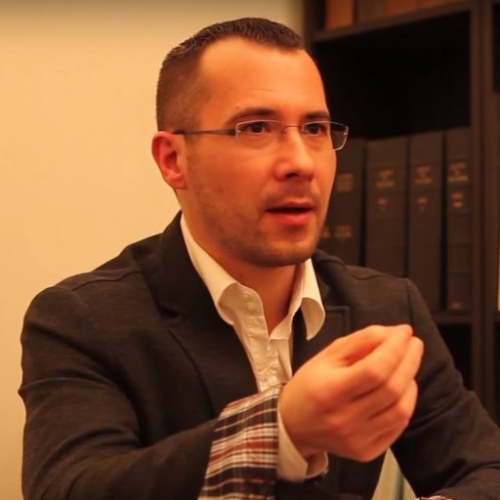

 En vérité, les jeux sont faits, parce que Macron est tout ce qu’on veut : de gauche, de droite, du centre, hétéro, homo, gendre idéal, fils rêvé, intello, pragmatique, « prodige », marié avec sa mère, mais pas encore père, et tout dévoué pour finir d’évacuer l’idée de nation française dans un « espace France » ouvert au grand rut migratoire et à la soumission. Macron est vide ; mais c’est un vide sémillant, donc acceptable. Macron n’est qu’un Fillon qui a 25 ans de moins que l’ex-candidat de la droite officielle, pour qui il était impossible de voter, me dit une amie, depuis qu’on avait appris que ses discours étaient réécrits par une ordure telle que Macé-Scaron. Ce simple fait en dit long sur la décomposition morale d’une France où les musulmans s’apprêtent à voter pour Macron – raison suffisante pour ne pas le soutenir, me dit encore cette amie ; car partager un bulletin de vote avec un musulman est non seulement une faute, mais une soumission au muezzin du totalitarisme mondialisé.
En vérité, les jeux sont faits, parce que Macron est tout ce qu’on veut : de gauche, de droite, du centre, hétéro, homo, gendre idéal, fils rêvé, intello, pragmatique, « prodige », marié avec sa mère, mais pas encore père, et tout dévoué pour finir d’évacuer l’idée de nation française dans un « espace France » ouvert au grand rut migratoire et à la soumission. Macron est vide ; mais c’est un vide sémillant, donc acceptable. Macron n’est qu’un Fillon qui a 25 ans de moins que l’ex-candidat de la droite officielle, pour qui il était impossible de voter, me dit une amie, depuis qu’on avait appris que ses discours étaient réécrits par une ordure telle que Macé-Scaron. Ce simple fait en dit long sur la décomposition morale d’une France où les musulmans s’apprêtent à voter pour Macron – raison suffisante pour ne pas le soutenir, me dit encore cette amie ; car partager un bulletin de vote avec un musulman est non seulement une faute, mais une soumission au muezzin du totalitarisme mondialisé.



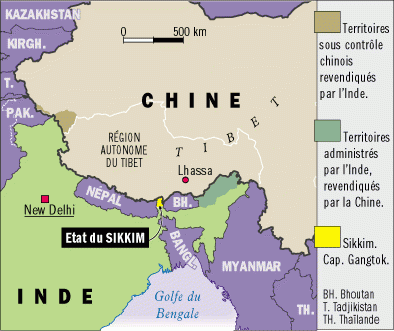
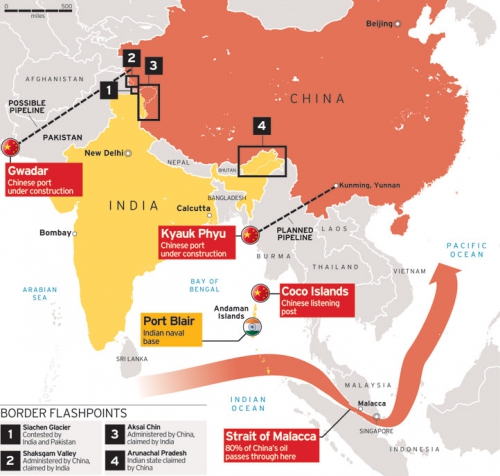
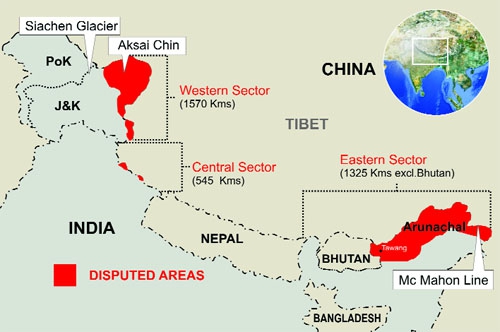

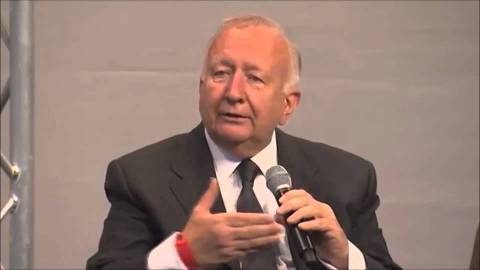

 RT France :
RT France : 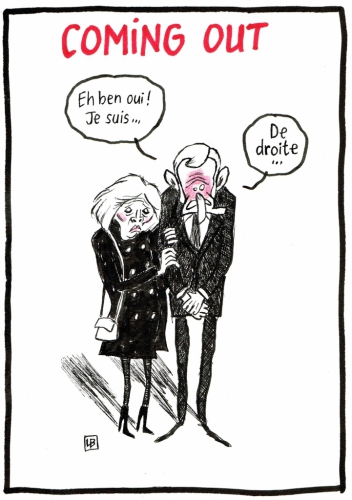





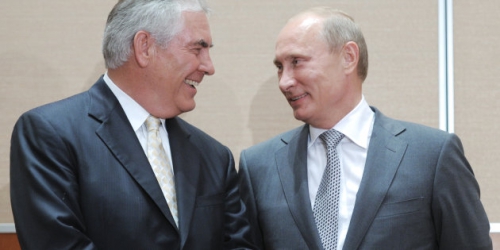

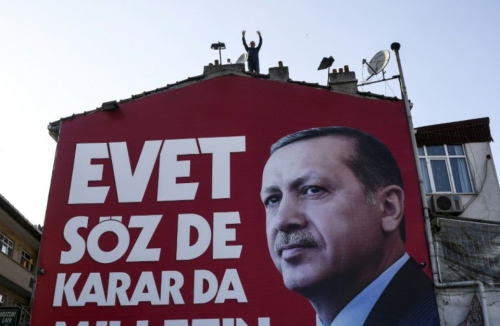
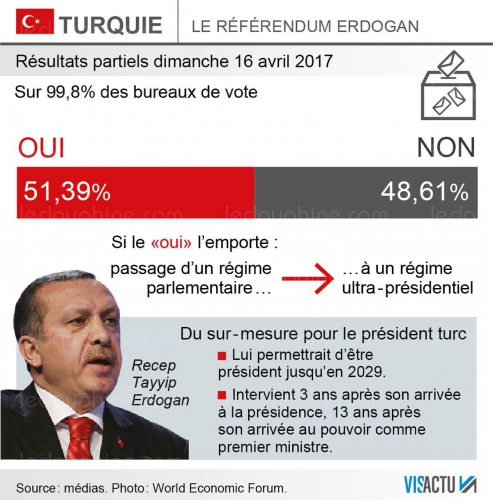
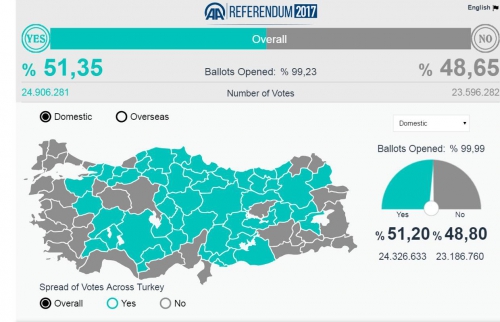
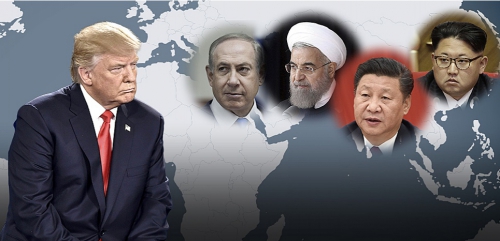

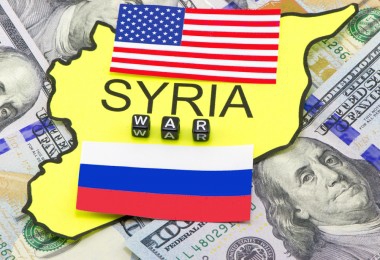
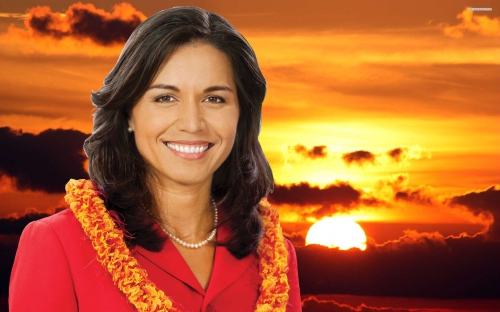







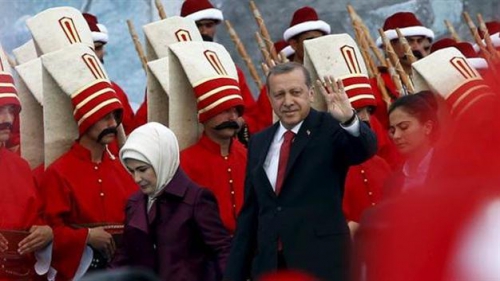


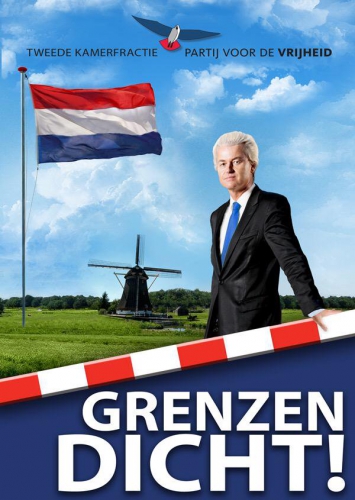
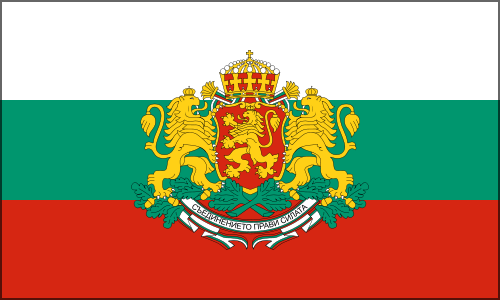
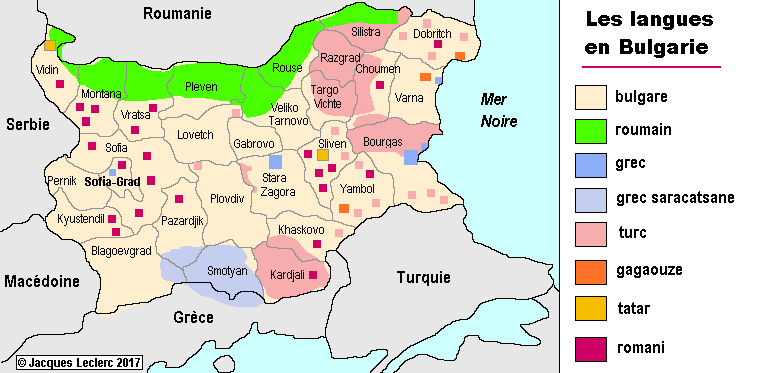
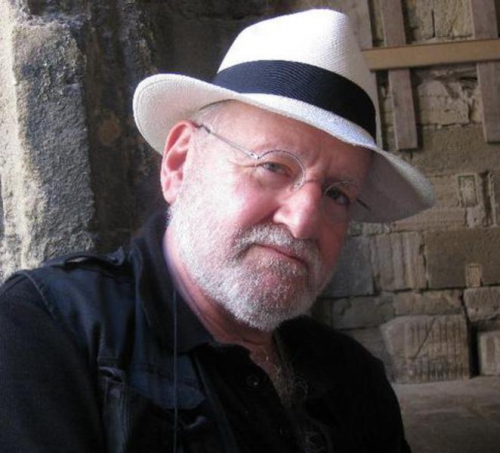

 Les raisons pour lesquelles ce système n’a pas pu donner une véritable alternative au capitalisme étatsunien me paraissent tenir au modèle même de développement choisi par l’URSS, de fait, le modèle étasunien plus que les modèles européens (cf. les reportages de Joseph Roth, Rüssiche Reisen), où tout en maintenant et déployant des coûts sociaux gigantesques que le système étasunien laisse à la philanthropie privée ou simplement abandonne à la débrouillardise, à souvent à la délinquance… A-t-on mesuré les coûts des vacances très largement subventionnées par les syndicats et donc les entreprises, les systèmes d’enseignement gratuits, la couverture médicales, peut-être médiocre en qualité) mais elle aussi quasi gratuite, comme la protection sociale, la culture, etc. Prenons un autre exemple : lors d’une interview donnée vers la fin de sa vie Tarkovski, le cinéaste soviétique, affirmait qu’il regrettait avoir émigré, car les conditions de travail qu’il avait trouvé en Occident (Suède et Italie) l’obligeaient à travailler rapidement, et donc sans le fignolage extrême qu’il affectionnait, en raison des problèmes de coût et de rentabilité, tandis qu’en URSS disait-il, on peut refaire une scène quarante fois sans que personne de la production ne vienne vous demande d’arrêter parce que c’est trop cher ! Ceci multiplié à l’échelle d’un empire (multiplication des établissements d’enseignement dans les républiques asiatiques, multiplication des institutions culturelles locales, cinéma arméniens, géorgiens, du Kazakhstan, Ouzbékistan), nous montre des coûts dont les États-Unis se dispensaient de supporter. De plus et ce n’est pas négligeable, à l’échelle de l’économie mondiale, les Soviétiques n’ont jamais eu la maîtrise d’une quelconque parcelle du commerce mondial en ce que la monnaie étalon de tous les échanges a toujours été le dollar, voire dans certaines zones européennes, le mark allemand, mais jamais le rouble même avec des alliés outre-mer de l’URSS comme autrefois l’Egypte, l’Ethiopie, l’Angola ; le rouble avait cours au sein du Comecon, et encore de très nombreux échanges s’y établissaient sur la base du troc… Certes, nul ne peut nier que deux raisons entravèrent la compétition avec les États-Unis, d’une part l’ampleur des destructions de la Russie d’Europe et de l’Ukraine pendant la Seconde Guerre mondiale, (on ne mesure pas ou l’on ne veut mesurer aujourd’hui l’ampleur de ces pertes) et le coût de la reconstruction dans un empire ayant refusé pour des raisons politiques le plan Marshall, à cela on rappellera à nouveau les coût du développement des armements afin de maintenir la puissance soviétique face aux États-Unis et, last but not least, une gabegie typiquement russe (longuement dénoncée par certains écrivains depuis le milieux du XIXe siècle) qui tient de son rapport conflictuel à la modernité que l’on retrouve dans les Balkans, voire en Hongrie et dans les Pays Baltes… gabegie qui était déjà là lors de la première modernisation de la Russie à la fin du XIXe et au début du XXe siècles…
Les raisons pour lesquelles ce système n’a pas pu donner une véritable alternative au capitalisme étatsunien me paraissent tenir au modèle même de développement choisi par l’URSS, de fait, le modèle étasunien plus que les modèles européens (cf. les reportages de Joseph Roth, Rüssiche Reisen), où tout en maintenant et déployant des coûts sociaux gigantesques que le système étasunien laisse à la philanthropie privée ou simplement abandonne à la débrouillardise, à souvent à la délinquance… A-t-on mesuré les coûts des vacances très largement subventionnées par les syndicats et donc les entreprises, les systèmes d’enseignement gratuits, la couverture médicales, peut-être médiocre en qualité) mais elle aussi quasi gratuite, comme la protection sociale, la culture, etc. Prenons un autre exemple : lors d’une interview donnée vers la fin de sa vie Tarkovski, le cinéaste soviétique, affirmait qu’il regrettait avoir émigré, car les conditions de travail qu’il avait trouvé en Occident (Suède et Italie) l’obligeaient à travailler rapidement, et donc sans le fignolage extrême qu’il affectionnait, en raison des problèmes de coût et de rentabilité, tandis qu’en URSS disait-il, on peut refaire une scène quarante fois sans que personne de la production ne vienne vous demande d’arrêter parce que c’est trop cher ! Ceci multiplié à l’échelle d’un empire (multiplication des établissements d’enseignement dans les républiques asiatiques, multiplication des institutions culturelles locales, cinéma arméniens, géorgiens, du Kazakhstan, Ouzbékistan), nous montre des coûts dont les États-Unis se dispensaient de supporter. De plus et ce n’est pas négligeable, à l’échelle de l’économie mondiale, les Soviétiques n’ont jamais eu la maîtrise d’une quelconque parcelle du commerce mondial en ce que la monnaie étalon de tous les échanges a toujours été le dollar, voire dans certaines zones européennes, le mark allemand, mais jamais le rouble même avec des alliés outre-mer de l’URSS comme autrefois l’Egypte, l’Ethiopie, l’Angola ; le rouble avait cours au sein du Comecon, et encore de très nombreux échanges s’y établissaient sur la base du troc… Certes, nul ne peut nier que deux raisons entravèrent la compétition avec les États-Unis, d’une part l’ampleur des destructions de la Russie d’Europe et de l’Ukraine pendant la Seconde Guerre mondiale, (on ne mesure pas ou l’on ne veut mesurer aujourd’hui l’ampleur de ces pertes) et le coût de la reconstruction dans un empire ayant refusé pour des raisons politiques le plan Marshall, à cela on rappellera à nouveau les coût du développement des armements afin de maintenir la puissance soviétique face aux États-Unis et, last but not least, une gabegie typiquement russe (longuement dénoncée par certains écrivains depuis le milieux du XIXe siècle) qui tient de son rapport conflictuel à la modernité que l’on retrouve dans les Balkans, voire en Hongrie et dans les Pays Baltes… gabegie qui était déjà là lors de la première modernisation de la Russie à la fin du XIXe et au début du XXe siècles…


 Voici un ouvrage qui a le mérite d’amener à la fois des éléments novateurs pour déchiffrer l’énigme de la chute du Bloc soviétique et d’éclairer sur la situation actuelle des Pays de l’Est. Échappant à l’autoglorification des valeurs « démocratiques et libérales » qui est la règle de la plupart des analystes occidentaux sur le sujet, il présente une vision bien plus complexe de la réalité du système « socialiste ». Il donne aussi un tableau quasi complet de l’histoire économique et sociale immédiate des principales ex-républiques populaires.
Voici un ouvrage qui a le mérite d’amener à la fois des éléments novateurs pour déchiffrer l’énigme de la chute du Bloc soviétique et d’éclairer sur la situation actuelle des Pays de l’Est. Échappant à l’autoglorification des valeurs « démocratiques et libérales » qui est la règle de la plupart des analystes occidentaux sur le sujet, il présente une vision bien plus complexe de la réalité du système « socialiste ». Il donne aussi un tableau quasi complet de l’histoire économique et sociale immédiate des principales ex-républiques populaires.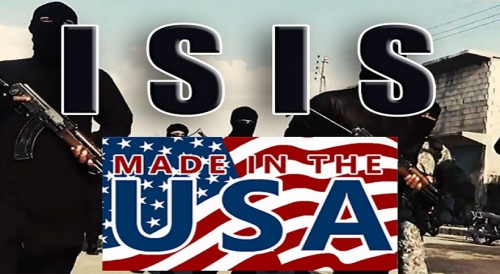
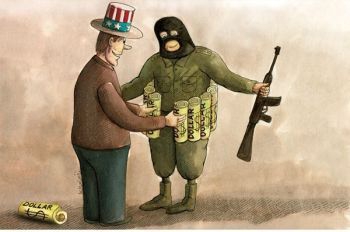
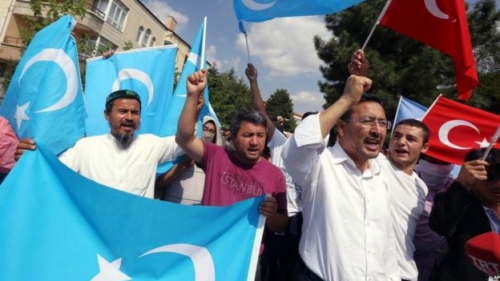
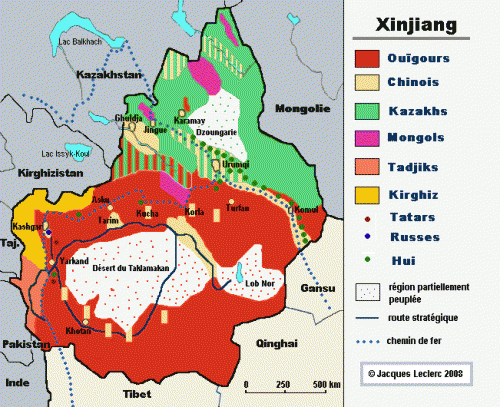
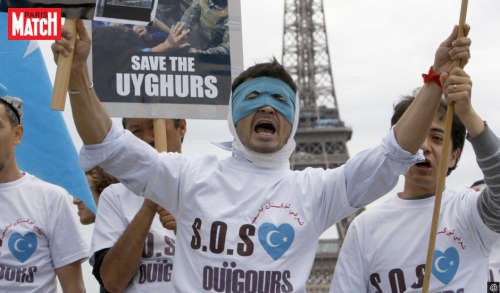
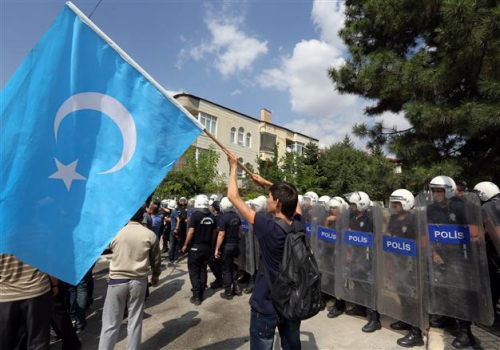
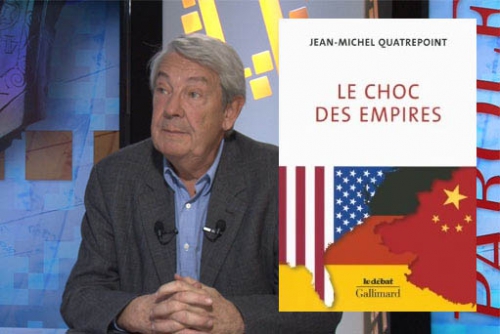
 Ce cycle néolibéral avait commencé le 15 août 1971, avec l’abandon de la convertibilité du dollar en or, autrement dit avec la fin du système de Bretton Woods. Une fin décidée unilatéralement par Nixon alors que les Américains avaient besoin de créer beaucoup de monnaie pour financer tout à la fois la guerre du Vietnam et la guerre des étoiles. En 1971, on bascule donc dans un système de changes flexibles. Dans le même temps, l’école de Chicago [une école de pensée néolibérale dont la figure emblématique est Milton Friedman] entreprend un travail théorique visant à bâtir un corps de doctrine en rupture avec le keynésianisme. Cette école théorise le « trop d’État, trop de syndicats, trop de conglomérats et de monopoles ». Elle plaide pour la dérégulation et la casse du système pour le rendre plus dynamique.
Ce cycle néolibéral avait commencé le 15 août 1971, avec l’abandon de la convertibilité du dollar en or, autrement dit avec la fin du système de Bretton Woods. Une fin décidée unilatéralement par Nixon alors que les Américains avaient besoin de créer beaucoup de monnaie pour financer tout à la fois la guerre du Vietnam et la guerre des étoiles. En 1971, on bascule donc dans un système de changes flexibles. Dans le même temps, l’école de Chicago [une école de pensée néolibérale dont la figure emblématique est Milton Friedman] entreprend un travail théorique visant à bâtir un corps de doctrine en rupture avec le keynésianisme. Cette école théorise le « trop d’État, trop de syndicats, trop de conglomérats et de monopoles ». Elle plaide pour la dérégulation et la casse du système pour le rendre plus dynamique.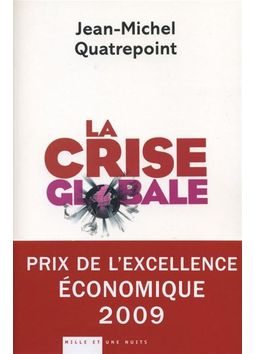
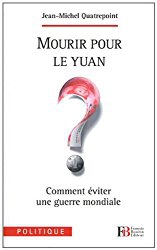

 Bannon est extrêmement influencé par les travaux de deux commentateurs de la sorte que nous nommerions “crisologues” tant le concept de crise (crisologie) est au centre de toutes nos réflexions, Neil Howe et William Strauss, auteurs de An American Prophecy, en 1997. Les deux auteurs adoptent une approche de l’actuelle situation, – la grande Crise se faisant déjà sentir dès la fin du communisme avec la mise en cause radicale de la notion de Progrès, – qui se réfère aux théories cycliques de la Tradition. « [Leur] analyse rejette les promesses des historiens occidentaux modernes de développement social et économie linéaire (progrès continuel et déclin) ou chaotique (trop de complexité pour révéler n’importe quelle direction). Au lieu de cela, ils adoptent la vision d’à peu près toutes les sociétés traditionnelles : que le temps social est un temps cyclique dans lequel les événements sont significatifs seulement dans la mesure où ils sont caractérisés par ce que le philosophe Mircea Eliade nommait “reconstitution”. Dans l’espace cyclique, une fois que vous avez écarté les accidents accessoires et sans signification, ainsi que la technologie, il vous reste un nombre limité de conceptions sociales, qui tendent à se répéter selon un ordre bien fixé... »
Bannon est extrêmement influencé par les travaux de deux commentateurs de la sorte que nous nommerions “crisologues” tant le concept de crise (crisologie) est au centre de toutes nos réflexions, Neil Howe et William Strauss, auteurs de An American Prophecy, en 1997. Les deux auteurs adoptent une approche de l’actuelle situation, – la grande Crise se faisant déjà sentir dès la fin du communisme avec la mise en cause radicale de la notion de Progrès, – qui se réfère aux théories cycliques de la Tradition. « [Leur] analyse rejette les promesses des historiens occidentaux modernes de développement social et économie linéaire (progrès continuel et déclin) ou chaotique (trop de complexité pour révéler n’importe quelle direction). Au lieu de cela, ils adoptent la vision d’à peu près toutes les sociétés traditionnelles : que le temps social est un temps cyclique dans lequel les événements sont significatifs seulement dans la mesure où ils sont caractérisés par ce que le philosophe Mircea Eliade nommait “reconstitution”. Dans l’espace cyclique, une fois que vous avez écarté les accidents accessoires et sans signification, ainsi que la technologie, il vous reste un nombre limité de conceptions sociales, qui tendent à se répéter selon un ordre bien fixé... »


